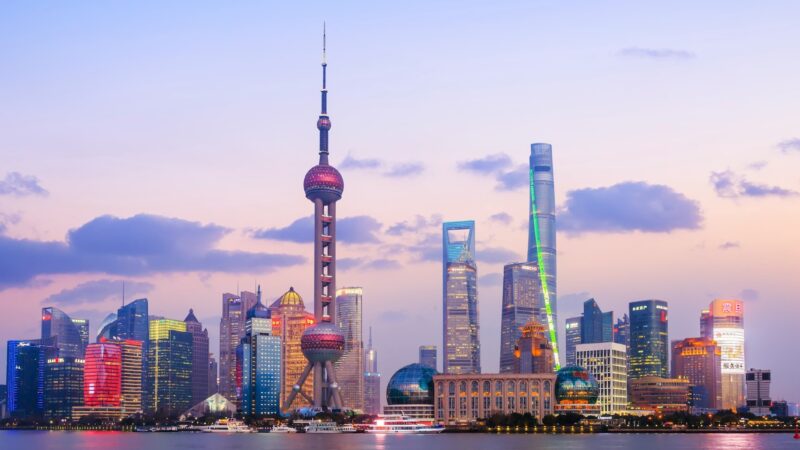What I’ve Learnt as a Revolutionary Communist
This article was originally published in November 2021.
I have a confession to make.
A few months ago I was made an official member of the Revolutionary Communist Group after being involved as a participating supporter for about a month and a half. The RCG are, in their own words, Marxist-Leninist, pro-Cuba, pro-Palestine, internationalist, anti-imperialist, anti-racist and anti-capitalist. They believe that capitalism is causing climate change, which they refer to as the ‘climate crisis’, and that socialism/communism is the only way to avert catastrophe.
They believe that the twin forces of imperialism and capitalism work today, and have been working for hundreds of years, to enrich the Western capitalist class by exploiting the labour of the proletariat and plundering the resources of the ‘Global South’. They publish a bi-monthly newspaper entitled ‘Fight Racism! Fight Imperialism!’ which acts as an ideological core around which centre most of the groups discussions.
After two months of twice-weekly zoom calls, leafleting in front of busy train stations and protesting in front of embassies, I was finally invited to become an official member. I rendezvous-ed with two comrades before being taken to a door which was hidden down a dark alleyway and protected by a large iron gate – certainly a fitting location for a revolutionary HQ. Inside was an office and a small library stocked with all manners of communist, socialist and anti-imperialist literature including everything from Chavs by Owen Jones to The Labour Party – A Party Fit For Imperialism by Robert Clough, the group’s leader.
I was presented with a copy of their constitution, a document about security and a third document about sexual harassment (the RCG has had issues with members’ behaviour in the past). It was here, discussing these documents for almost three hours, that I learnt most of what I know now about the RCG as an organisation and the ecosystem it inhabits.
The RCG is about 150-200 members strong with branches across the country – three in London, one in Liverpool, Manchester, Norwich, Glasgow and Edinburgh and possibly more. In terms of organisation and decision-making they use what they call ‘democratic centralism’ – a sprawling mess of committees made up of delegates that appoint other committees that all meet anywhere between once every two weeks and once every two years. They’re also remarkably well funded, despite the fact that their newspaper sells for just 50p. They employ staff full time and rent ‘offices’ up and down the country. They draw income from fundraising events, members dues, newspaper and book sales and donations (both large and small).
Officially, the RCG is against the sectarianism that famously ails the Left. However, one zoom call I was in was dedicated to lambasting the Socialist Workers Party who, I soon learnt, were dirty, menshevik, reactionary Trots. We referred to them as part of the ‘opportunist Left’ who routinely side with the imperialists.
The RCG doesn’t generally maintain good relations with many other major leftist groups. Central to RCG politics is the idea of a ‘labour [small L] aristocracy’ – a core of the working class who have managed to improve their material conditions just slightly and so work against the interests of the wider working class, suppressing real revolutionary activity in order to maintain their cushy positions. The RCG sees the Trade Union movement as the bastion of the labour aristocracy. They see the Labour party also as their greatest enemy – ‘the single greatest barrier to socialism in Britain’.
The RCG takes issue with the SWP specifically over their attitude to Cuba. They believe that most Trotskyists are too critical of socialist revolutions that have occurred in the past and so are not real communists – after all, no revolution will be perfect. The RCG’s issue with the Communist Party of Great Britain (CPGB) is that they resent how the CPGB claims to be the main organisation for communism in this country and uses its coziness with the trade unions as a signifier of legitimacy. However, the RCG believes that this makes the CPGB not much more than an extension of the Labour party, which it despises.
The CPGB-ML (Communist Party of Great Britain – Marxist-Leninist), on the other hand, are much closer politically to the RCG. They also share the same view on the Labour party. However, the CPGB-ML has recently taken a loud anti-trans position and so the RCG wants nothing to do with them.
Socialist Appeal are a group that has organised with the RCG in London before but the two do not get along due to, once again, the former’s (until recent) support for the Labour party every election. The RCG also shares views with Extinction Rebellion but XR now no longer wants anything to do with the RCG because of the RCG’s insistence on selling its communist newspaper at every event its members attend. The RCG insisting on trying to recruit members at every event it attends, including events co-organised with other groups, is a major source of friction and one of the reasons nobody wants to organise with them. It’s also one of the reasons why the RCG has stopped organising with LAFA – the London AntiFascist Assembly.
LAFA, I was told, are a chaotic bunch. They staunchly oppose all forms of hierarchy and make decisions on a ‘horizontalist’ basis. In true anarchist fashion, there are no official leaders or ranks at all in LAFA and decisions are made sort of by whoever takes the initiative. Unfortunately this means that those who become unofficial leaders in the group are accountable to absolutely no-one because they are not technically responsible for anything, and naturally issues arise from this quasi-primitivist state of affairs. Ironically, this makes the London AntiFascist Assembly kind of based.
Interestingly, one organisation with which the RCG has never had any problems is Black Lives Matter. The RCG and Socialist Appeal were (apparently) the only two groups out on the streets in solidarity with BLM last summer – BLM even allowed RCG members to speak at their events. The RCG enjoyed quite a close and amicable relationship with BLM right up until BLM decided at the end of last summer to effectively cease all activity, with the reason given to the RCG being just that ‘the summer has ended’. Presumably, the bulk of BLM’s activist base either had to go back to school or just got bored.
Although the RCG strictly prohibits any illegal activity at any of its protests, one clause of the constitution is ‘a revolution clause’ requiring members to leave their jobs and move house at the discretion of the RCG. I was told this clause has never been invoked and isn’t expected to be invoked for decades at least but is there in case a genuine communist uprising were to take place somewhere in the country and RCG leadership decided that it needed members to move into the area to help. The RCG is intent on staying firmly on the right side of the law for the foreseeable future – supposedly until class consciousness is raised to such a level that the time for revolution arrives. Whether or not history will pan out the way they think it will, only time will tell.
Perhaps most curious was the group’s confused stance on lockdowns. They are fiercely pro-lockdown and pro-mask, but also highly critical of the government’s approach for reasons that are quite vague. Why a communist organisation would want to place unprecedented power in the hands of a government – a Tory government no less – that it thinks operates as the right arm of global capital is beyond me. When I brought this up, a lone voice of dissent in my branch, I was told I had made a ‘valid point’ and that the group needed to discuss the matter further, but that was it. The only explanation I could arrive at was that unfortunately the RCG, and I think the Left generally, are deep in denial about being anti-establishment.
The RCG’s modus operandi is the weekly stall: three or four communists will take a table and a megaphone to a busy location and try to hand out leaflets and sell copies of the FRFI newspaper. The idea was that people whose values loosely align with those of the groups could be contacted and organised by way of these stalls. The law of large numbers means that these stalls are curiously successful – one two-hour stall at the weekend can sell a dozen newspapers and enlist a handful of people to be contacted by the group at a later date. The process of collecting people and funnelling them down the contact-member pipeline is a slow one with a low success rate, but they’re relentless.
Interestingly though, I believe their decades-old activist tradition is actually one of their biggest weaknesses. Ironically, so-called progressives are stuck in the past. The RCG has a very minimal online footprint – it uses its profiles on twitter and Instagram only to post dates for upcoming events. The RCG have so much faith in their traditional method of raising ‘class consciousness’ (translation: spreading communism) that they’re losing the internet arms race and thus their grip on young people – their traditional base. The fact that the group has a large proportion of older members might have something to do with it.
However, Leftists are good at street activism – they’ve been doing it for decades. Leftist activist groups have ingrained in their traditions social technology – sets of practices, behaviours and attitudes – that have developed over time and that their opponents would do well to familiarise themselves with, like looking at the homework of a friend (or in this case, an adversary).
The RCG believes that it is one of very few, maybe even the only, Leftist group in Britain today committed to maintaining a substantial street presence. One of the conditions for membership, after all, is promising to attend at least one street protest a week. The RCG no doubt take their activism seriously, with a comrade even describing the group to me as being made up of ‘professional revolutionaries’. They believe that they are growing and will continue to grow in strength, propelled by financial and then ecological crises. They are very excited for the collapse of the Labour party, which they believe is all-but imminent, because they think it will cause swathes of the Left to lose faith in a parliamentary means of achieving socialism and take to the streets, where the RCG will be waiting for them.
My time as a revolutionary communist has been challenging but what I’ve learned is no doubt valuable. I strongly encourage others to do as I have, if only just for a few weeks or so. Join your local leftist organisation – pick a sect, any sect! Expand your knowledge, see a different perspective and gain skills you might not gain anywhere else. Speak to people with a completely different viewpoint from yours and learn how they think, you’ll be a slightly better and more knowledgeable person for it.
Quote: Leftists are good at street activism. They have ingrained in their traditions social technology that have developed over time and that their opponents should familiarise themselves with.










A Brief History of US Student Politics
‘Hey, hey LBJ, how many kids did you kill today?’
These chants outside of the White House haunted Lyndon B. Johnson throughout his presidency. He would sit in the Oval Office with his head in his hands as the chants wafted through the walls. When his son-in-law Charles Robb sent in a tape from Vietnam, Johnson buckled against the table and looked as though he was in tears. For the loud Southern Jackson, who took great pleasure in towering over and intimidating others, this seemed like quite a big deal.
This is not about Johnson, however. This is about the students who protested him and the Vietnam War. This is about the students who protest now and any time.
An American Education
Harvard University was founded in 1636 and is classed by many as the oldest institute of higher education in the United States. Throughout history, the Ivy League colleges (Harvard, Yale, University of Pennsylvania, Princeton, Columbia, Brown, Dartmouth and Cornell) have been considered the most elite, though others have made quite the showing. Between them, the Ivy League colleges have educated fifteen US presidents. They’ve also educated many Supreme Court Justices, Governors and members of Congress.
Throughout early American history, the Ivy League and other elite colleges were almost exclusively for white, wealthy men. Colleges for women did exist, such as the female equivalent of the Ivies, the Seven Sisters, though they came far later. Colleges for African-Americans also came later, such as Howard and Tuskegee.
Cornell began to accept women in 1870, but it took until 1983 for all of them to admit women, with Columbia being the last.
Minority men were able to attend earlier and more frequently, with Yale being the last to accept black students in 1964.
Despite more diversity in terms of the student body, Ivy League colleges see students of the wealthy 1% overrepresented. One in six Ivy students have parents from the top 1%, and they are 34% more likely to be accepted than students with the same scores but from less wealthy backgrounds. The children of these parents are also more than twice as likely to attend elite universities- the Ivies, Stanford, MIT, Duke and Chicago.
The Times They Are A-Changin’
Whilst protests and activism were not unknown prior, the 1960s saw an explosion in it.
The decade was one of great social change, perhaps the greatest since the 1860s. Firstly, there was more of a focus on youth. TV, radio and movies began to cater to teenagers. Bands like the wholesome Beach Boys and sassy Beatles saw teenage screaming along. As incomes expanded, college enrollment doubled between 1945 and 1960, doubling once again by 1970.
There was also less social and cultural hegemony than before, something that Richard Nixon and his Silent Majority sought to exploit. The Civil Rights movement was at an apex as students sat at segregated café counters and took integrated buses to register African-American voters in the Deep South. Second-wave feminism saw women demand access to birth control, abortion and equality in the workplace. As students moved away from their generally conservative homes, many became embroiled in a more progressive political atmosphere.
Perhaps most impactful in terms of lives was the Vietnam War. Action in the Asian nation had significantly escalated, particularly after the Gulf of Tonkin incident in 1964.
Students in particular were opposed to the draft. College students could receive deferments, but they were in the target conscription demographic of being young and healthy and unmarried, though the marriage deferment ended in summer 1965. One of the most notable forms of protests saw students burning their draft cards.
They were also active in the protest movement as a whole. College campuses became hotbeds of political activity. Students also joined protests and demonstrations.
There were varied reasons as to why students in particular were opposed to the war. Some echoed the popular sentiment of many that it was war thousands of miles away that did not have anything to do with America. Others believed that American soldiers were killing innocent civilians. Some thought that the money would be better spent elsewhere or that war in general was wrong.
One college that became a centre of counterculture politics was UC Berkeley. The California university became a hub of activism and protests regarding Civil Rights, free speech and Vietnam.
Most of the decade saw passionate but peaceful protests in the area, but this changed. In April 1969, students at Berkeley set up an informal encampment in People’s Park, scuppering a plan to turn it into a public space. On the 15th May 1969, police arrived to turf the squatters out. This, combined with a nearby college protest, saw around 6,000 people turn out at the park. The police eventually opened fire, killing San Jose resident James Rector as he watched from the roof. Many others were injured; one man was blinded. California Governor Ronald Reagan called in the California National Guard.
There had been a notable protest at New York’s Columbia University a year before. Black student protestors had asked white protestors to protest separately, which they did, segregating it on racial lines. Some of the students occupied the administrative Hamilton Hall, holding Acting Dean Henry S. Coleman hostage.
In another protest that year, students at Morehouse in Atlanta held the board of trustees. One of those students was a young Samuel L. Jackson.
Sixties Assassinations
Adding to the students’ cynicism were the assassinations of four famous men, all of whom were generally admired by students.
The first was John F. Kennedy in November 1963. Kennedy had been a proponent of college education and had been a point of fascination for young people, mainly due to his relative youth compared to other politicians.
The second was Malcolm X, the firebrand minister for the Nation of Islam and advocate of civil rights. He was slain in February 1965.
The third was Martin Luther King Jr, the well-known minister who advocated for civil rights via peaceful means. He was killed in April 1968.
The fourth and final one was Robert Kennedy in June 1968. He had entered the Democratic race for president as an anti-war and liberal alternative to unpopular incumbent Lyndon B. Johnson.
Death At Kent State
One of the most tragic events of the student protest movement came in May 1970.
The Sixties was over and new president Richard Nixon had promised law and order. Meanwhile, America was expanding military operations in Vietnam by entering neighbouring Cambodia. This caused immediate controversy in the anti-war movement. Several hundred students at Kent State in Ohio were protesting this. Residents and police officers had been concerned about potential repercussions in the community, and the Ohio National Guard was called.
The National Guard attempted to disperse the crowd through tear gas and other means, but this failed. Protestors began to throw rocks and other projectiles at them before being herded away. Near a hill, some of the officers started to open fire. Four students- two men and two women- were killed. Nine others were wounded, one of whom was permanently paralysed.
Images of the event, including the famous picture of a horrified teenager standing over one of the bodies, caused even more riots and protests across the nation. 100,000 people marched on Washington a few days later, leading to Richard Nixon famously talking to protestors in the middle of the night at the Lincoln Memorial.
Post-Sixties
Whilst the chaos of the 1960s gave way to a relatively more peaceful 20th century, activism and protests still remained. College Democrats and College Republicans have both been popular hubs for the partisan-minded students. Politicians regularly attend speeches and rallies, especially when they’re supported by the students.
As a rule, colleges tend to be on the left of the spectrum, in both faculty and students. Exceptions to this tend to be religious institutions like Bob Jones and Liberty University.
Issues that have arisen include the Iraq War, climate change, school shootings, race, gender, sexual assault and rape and military engagement in general.
The Current Protests
On the 7th October 2023, Israel was surprised by an attack by Hamas. People were murdered, missiles were fired and civilians taken hostage. In response, Israel had gone all out on Hamas. As a result, there have been numerous deaths and injuries in Palestine. Many people have been made homeless or have needed to evacuate from their homes. Some have flooded into neighbouring Egypt. Neither Palestine or Israel are safe.
Sympathy for the deaths of innocents have been widespread, but there is a huge difference in opinion regarding Israel. Protests have happened in major cities across the world, with the pro-Palestine side occupying most of that space. London for example has seen weekly protests since October.
The issue has become a massive one in America. Historically, the American government has been a strong supporter of Israel. Joe Biden has given assistance to Israel, but seems to want incumbent Israeli PM Benjamin Netanyahu out. Internally, there is debate amongst the legislative branch. Pro-Palestine and anti-interventionist politicians have come together to stop aid to Israel. Others wish to help it more.
It’s also been dynamite for college campuses. Coast to coast, north to south, university students have been protesting non-stop since October. The Ivy League colleges have been the centre of the protests, but other elite and notable colleges such as Stanford, Berkeley, Northeastern, NYU, Ohio State, and Emerson have seen student activism.
Students have been calling for an immediate ceasefire in the area. Regarding their own colleges, they ask for the institutions to break all ties to Israel, especially regarding financial gifts.
The protests themselves have been controversial. The shouting of ‘from the river to the sea’ is seen as a call to action against Jews, as well as the calling of a global intifada. Flickers of anti-semitism have allegedly been seen in these protests, despite the bulk of participants proclaiming they oppose Zionism, not Jews. Some Jewish students have participated in the protests, whilst others feel unsafe. Classes have been called off and students have been forced to study online.
Encampments have been put up on several campuses. Some have been cleared by police whilst others remain. These encampments are made up of tents, donated food and other communal activities, all of which are subject to rules. Whilst the protests remain mainly about Israel and Palestine, they tend to bend towards anti-capitalism and progressive ideology.
New York’s Columbia University has been the establishment most in the news. On the 17th April, a number of Columbia students started an encampment. Whilst the encampment was torn down by police the next day, it was rebuilt and protests continue. Students report difficulty getting to class. Arrests and suspensions have also been made.
Student Kyhmani James became the subject of media attention following comments regarding the murder of Zionists. He filmed a video of himself talking to the administration in an attempt to get his views across. Unfortunately for Mr. James, he has been kicked out of Columbia.
The Response
America’s 1st Amendment is very strict on the freedom of speech and assembly. That being said, law enforcement and university officials are more than a little tired of it. Students have been arrested, suspended and even expelled. Three college presidents have sat before Congress- Mary Magill of UPenn, Sally Kornbluth of MIT and Claudia Gay of Harvard. Magill resigned in December 2023, and Gay followed in January 2024 after a plagiarism scandal.
Some presidents have been tough. The University of Florida sent out a very clear letter to protestors telling them which behaviour was appropriate and what would get them kicked out. Florida State turned on the sprinklers. Northeastern University got the police to clear the encampment, saying that the use of ‘Kill the Jews’ crossed the line. Florida Governor Ron DeSantis promised to expel any protestors who joined mobs. Even Columbia, the home of the most infamous protests, allowed the police in to tear down the encampment.
It doesn’t look like this is going to go away anytime soon. What some call a win for free speech is what others call going ‘too far’. As parents look away from the Ivy League to less elite but still reputable universities, one wonders if it’s a case of rich kids with too much time on their hands and no problems of their own. Is it that or a genuine example of solidarity with Palestine? Whatever the case, America’s campuses remain on metaphorical fire.
Photo Credit.